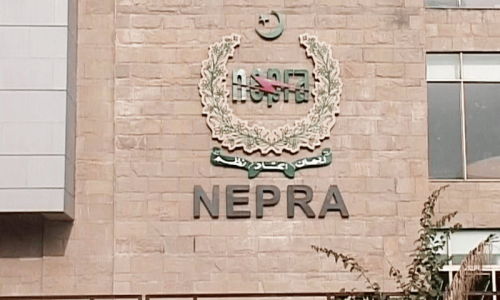ISLAMABAD: Reporting a reversal of the declining trend in power consumption after many months, public sector power companies have sought a Rs1.016 per unit negative fuel cost adjustment (FCA) in electricity bills, with an estimated refund of Rs10 billion for consumers overcharged in October.
This will be the fourth consecutive month of negative FCA, mainly because of substantial fuel allowances allowed by the National Electric Power Regulatory Authority (Nepra) through a 20 per cent increase in base tariff effective July 2024 to June 2025.
Domestic fuel sources accounted for 71pc of the total power supply in October, with nearly half generated at zero fuel cost.
In its petition, the Central Power Purchasing Agency (CPPA) reported an 8pc year-on-year increase in power consumption to 9.98bn units (GWh) in October 2024 compared to 9.25bn units in the same period last year. This rise is attributed to the delayed onset of winter temperatures.
Nepra to consider CPPA’s proposal for Rs1.02 per unit negative FCA
Another key feature in the petition is about 19pc lower fuel costs in October over the same month last year, which apparently stems from a substantially higher base tariff for the current year.
The power companies have claimed in their petitions that average fuel cost amounted to Rs9.25 per unit in October compared to Rs11.43 per unit in the same month last year, down 19pc. They said the power consumption was almost 7.87pc higher than in October last year.
Nepra has called a public hearing on Nov 26 to take up the CPPA’s petition, which seeks “a decrease of Rs1.0159 per kWh over the reference fuel charge of Rs10.2752 per unit”.
The CPPA, a subsidiary of the power division, said the power companies had charged a fuel cost of Rs10.275 per unit in October, which actually turned out to be Rs9.259 per unit.
The CPPA, acting as a commercial agent of power distribution companies (Discos), proposed that a negative FCA of Rs1.0159 per unit should be adjusted to consumer bills in December 2024 for the electricity consumed in October.
It said that about 10,262 GWh of electricity was generated at an estimated fuel cost of Rs93bn (Rs9.059 per unit) in October, of which 9,981 GWh was delivered to Discos for Rs92.4bn (Rs9.26 per unit).
The biggest share of the total power supply, or 31pc, came from hydroelectric sources compared to its 32.5pc share last year. Hydropower has no fuel cost.
The second biggest share of 19.5pc in the national grid came from LNG-based power, followed by local coal (14.8pc) and nuclear (14.05pc).
The supply from coal-based generation amounted to about 24pc of the total grid supply, up from 19.3pc last month. Of this, the local coal’s share increased to 14.8pc from 10.1pc last month, while imported coal’s share dropped to 8.8pc from 9.2pc. This was followed by an 8pc contribution from local gas.
The LNG-based power generation cost in October stood at Rs22.64 per unit, followed by Rs16.9 per unit from imported coal and Rs11.18 per unit from local coal. Furnace oil-based generation cost came in at Rs29.14 per unit, but its contribution was just 0.02pc in the overall power supply.
On the other hand, the cost of local gas-based generation stood at Rs14.25 per unit and nuclear fuel cost amounted to Rs1.51 per unit.
Hydropower was produced at zero cost while three renewable energy sources — wind, bagasse and solar — together contributed 3.3pc share to the grid. Wind and solar have no fuel cost, while bagasse-based generation cost returned to Rs5.85 per unit in October compared to Rs12.48 in September.
Electricity imported from Iran accounted for 0.4pc of total power supply at Rs25.33 per unit.
Under the current tariff mechanism, monthly fluctuations in fuel costs are passed directly to consumers through FCAs, while quarterly adjustments — covering power purchase price, capacity charges and system losses — are incorporated into the base tariff by the federal government.
Published in Dawn, November 16th, 2024














































